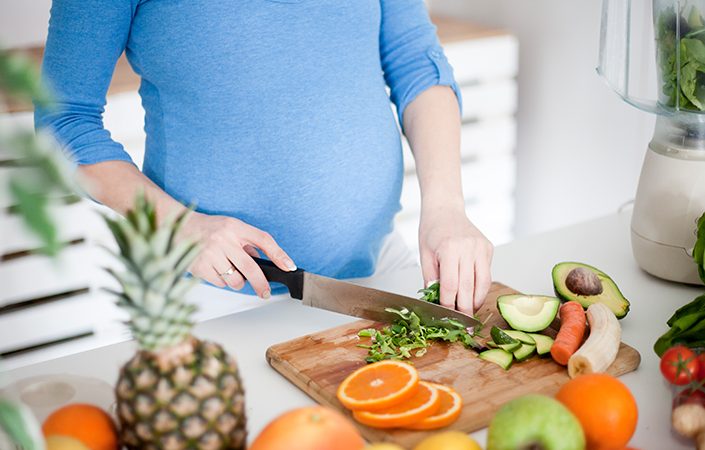
Stealthy and silent in the night, your 40s sneak up on you. One day you feel like your self and then, as if out of nowhere, everything changes. Suddenly your body shape has changed or you’re holding on to a few more kilos than normal and something just doesn’t feel the same.
You’re not alone. Just like when you were a teenager, your body is going through changes, only this time no one warned you! Some of the changes come with age, some are due to menopause…there’s a lot of factors and everyone is a little bit different.
So to make things easier we’ve laid it all on the line, here’s everything you wanted an explanation for and what you can do to feel healthy and happy.
1. Your hormones are starting to do their own thing.
Hormones. The chemical messengers that control most body functions are also responsible for most of the changes you’re experiencing.
As you approach menopause, the levels of oestrogen, progesterone, and testosterone start to change which causes a whole host of changes, from decreased bone density and lean muscle mass to unwelcome mood changes.
But don’t feel like it’s just something you have to deal with. Talking to friends or family, or even and an online group where you’ll probably find a lot of people going through something similar. It can help you feel more positive and embrace the changes.
2. Your metabolism is naturally slowing.
Yes, your metabolism is linked to your hormones, so you can kind of lump this in with number one but, after the age of 40, you start to naturally lose muscle mass at a rate of about 1% a year thanks to the dropping oestrogen and testosterone levels.
Add to that a naturally slowing resting metabolic rate your just doesn’t burn calories the same way as it did when you were young.
So, you might find you start to accumulate more fat, especially around your waistline and find yourself asking “how do I counter balance these changes?”
It’s simple really: stay active.
Try to incorporate a combination of strength training and cardiovascular exercise into your routine – switch things up with fun classes like cardio dance or boxing and get some strength training in two to four times a week.
Not only will it help rebuild lean muscle mass, which also helps burn fat and improve your metabolism but it helps keep your bones and body strong and healthy.
3. Your body starts becoming insulin resistant.
As you get older, and especially as you gain weight, your body starts to ignore insulin, the hormone (there’s that word again!) responsible for regulating blood sugar levels.
As a result, you blood sugar is higher, because your cells aren’t absorbing it and you’ll often feel like you’re hungry, and you may be hit with more cravings.
So, to avoid a glucose overload make sure your meals include a healthy mix of carbohydrates, protein, and fat. Eating a diet high in protein you’ll feel fuller longer and a varied diet will provide you with all the nutrients you need while avoiding a sugar crash later in the day.
Remember, not all carbs are created equal; refined carbohydrates cause blood sugar to spike so opt for whole grains which have more fiber and breaks down slowly, gradually releases sugar into the bloodstream.
4. Your appetite is all over the show.
Hormones like ghrelin (which tells you when you’re hungry) and leptin (which tells you when you’re full) also start to fluctuate and the receptors for these hormones don’t work as well as they used to so we become resistant to them, too.
So if you’re finding yourself feeling hungry more often or wanting to eat more than normal it’s not just in your head.
A great way to keep a lid on things is to keep a food diary, that way you can pinpoint pitfalls in your eating habits and better understand your hunger cues.
(The other alternative is to choose a meal plan that delivers everything you need so you never have to be tempted by supermarket shelves or coffee shop treats again!)
5. Life gets in the way.
Between your career, family, and friends your 40s are pretty full and your workout schedule can easily get put on the back burner. Or maybe it’s just uncomfortable to workout, years of injuries and general use can sometimes leave you with creaky, achy joints that make you question if your workout is even worth it.
But it’s important to keep moving, and that doesn’t mean spending hours at the gym or running for miles. Shop around and find something you love that loves you back.
6. Stress.
We’re teetering on the edge of the obvious here and it should go without saying that stress is a huge factor in weight loss (and health in general).
Women experience a wide variety of stress when they reach middle age, be it managing their career and finances, caring for both their children and parents plus what ever else they have going on.
When you’re stressed, your body secretes cortisol, which can cause blood sugar levels to drop, making you want to eat more, especially sugar – queue cravings!
It’s important to make time for self care at any age but as you get older it should become a priority. Sometimes it’s okay to say no to people in order to concentrate on your health. Figure out what helps you relax, be it yoga, reading a book or going for a swim, and make time to do it.
7. You’re not getting your 40 winks.
As you get older, you might find that sleeping becomes somewhat of a chore. Maybe you just don’t feel rested, even after a full night’s sleep, or you’re struggling to even fall asleep.
This could be down to hot flashes or night sweats – another one to thank your hormones for!
So how can you make sure you’re getting the sleep you need? First things first: establish a bedtime routine and reduce your use of electronics before going to bed.
If its hot flashes and night sweats keeping you up try jumping in a cool shower before bed, wearing comfortable, breathable pajamas and avoid caffeine and alcohol, especially red wine – these are known triggers for hot flashes.
So now what?
Get back in tune with your body, eat a healthy, varied diet and stay active. Easier said than done? Yes. But that doesn’t mean you can’t do it.
Find easy ways to make sustainable changes to your lifestyle that you can work around your day to day. There’s no point trying to squeeze things in and giving yourself a headache over it, that’s just never going to stick.




